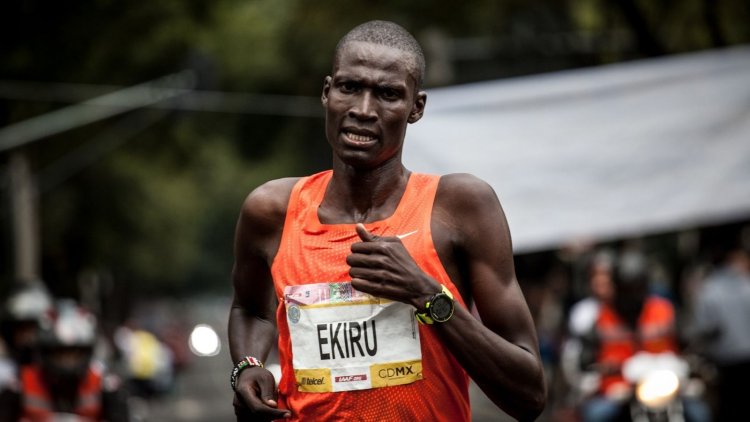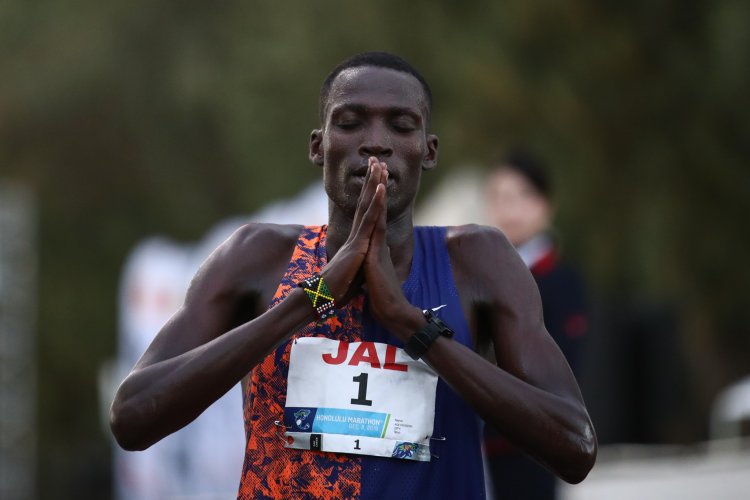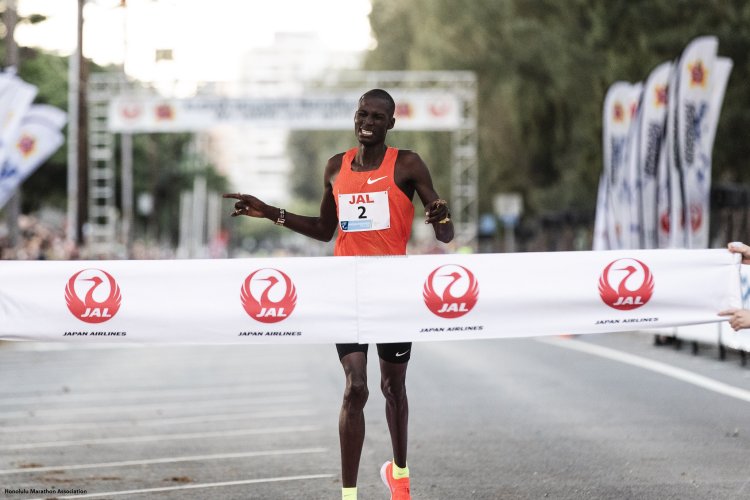Titus Ekiru: Kenyan Athlete Banned For 10 Years Over Doping Claims
AIU disclosed that Ekiru had colluded with a doctor at a Kenyan hospital to use prohibited substances

Kenyan athlete Titus Ekiru has been banned by the Athletics Integrity Unit (AIU), an International body that oversees athletics, for 10 years owing to doping allegations.
In a statement on Monday, October 16, AIU disclosed that Ekiru had colluded with a doctor at a Kenyan hospital to use prohibited substances as well as forge medical documents in an effort to mislead the anti-doping body.
“The AIU has banned Titus Ekiru (Kenya) for 10 years, from 28 June 2022, for the Presence of Prohibited Substances (Triamcinolone Acetonide and metabolite; Pethidine and metabolite) and for Tampering," AIU's communique read.

A photo of Kenyan athlete Titus Ekiru grimacing during a past race. /GETTY IMAGES
AIU further stated that Ekiru tested positive twice for the three substances in his in-competition urine samples at marathons which he won in 2021. These are the Generali Milano Marathon on May 16, 2021, and the Abu Dhabi Marathon on November 26, 2021.
The ban runs from June 28, 2022 (the date Ekiru was suspended) to June 27, 2032.
“In addition to the ban which runs from 28 June 2022 (the date of Ekiru’s provisional suspension) until 27 June 2032 – Ekiru’s results on and since 16 May 2021 have been disqualified, resulting in the forfeiture of all prizes and money. Ekiru’s victory in the Generali Milano Marathon would have made him the sixth-fastest marathoner of all time,” added the statement.
According to AIU, Ekiru was charged with two counts of the presence of a prohibited substance in July 2023 as per Rule 2.1 of the World Athletics Anti-Doping Rules (ADR) and two counts of Tampering or Attempted Tampering with any part of Doping Control (ADR Rule 2.5).
Initially, Ekiru signalled his intention to contest the charges. However, faced with substantial evidence against him, AIU revealed that the Kenyan athlete decided that he no longer wanted to pursue the case.
The international body also disclosed that it accessed Ekiru’s hospital records in conjunction with the Anti Doping Agency of Kenya (ADAK) which showed discrepancies in the marathoner’s explanations and supporting documentation.
“It was the testimony of the Nandi County Director of Medical Services which solidified the case against Ekiru with a series of damning conclusions while also exposing the complicity of the senior doctor,” AIU added.
The period of ineligibility is based on the violation that carries the more severe sanction – four years for tampering, plus two years for Aggravating Circumstances, totalling six years.
Another mandatory four-year sanction has been imposed for the second Tampering violation committed by Ekiru in connection with his explanation for the second Adverse Analytical Finding (AAF), which is to be served consecutively to the six-year period for the two Presence charges and the First Tampering or Attempted Tampering Charge, thereby totalling 10 years’ ineligibility.
Prior to today's ban, Ekiru held the joint sixth-fastest marathon time of 2:02.57, set en route to winning the Milano City Marathon in 2021.
He joins a long list of athletes in Kenya, including Betty Wilson Lempus, Eglay Nafuna Nalyanya and Rhonex Kipruto, who have been banned or received provisional suspensions in recent months.
The athlete was provisionally suspended in June 2022 after the AIU reopened an investigation into his doping charges with help from ADAK.
The 2019 African Games half marathon champion's explanations were rejected by AIU and was charged with Pethidine ADRV in March and with Triamcinolone Acetonide ADRV in April 2022.


 admin
admin 




